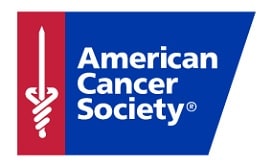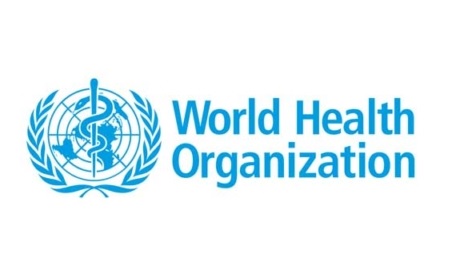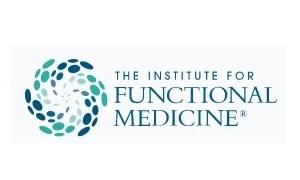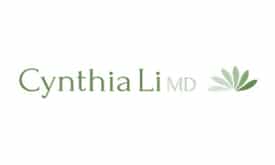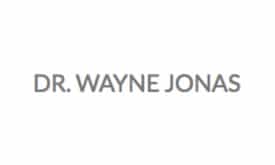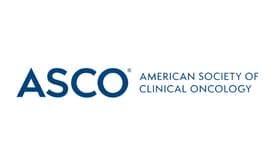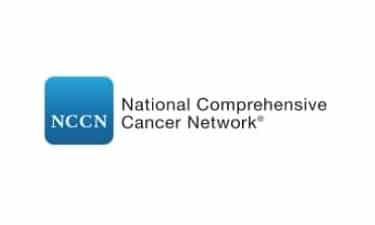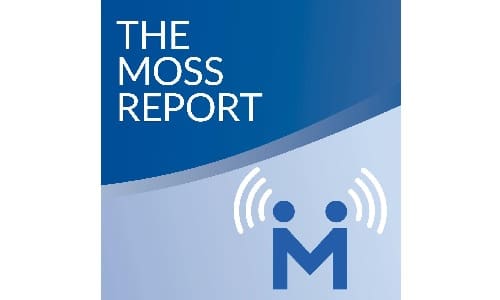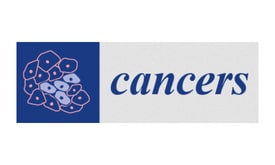“Patients should talk with their oncologists and health care teams to discuss their options to protect themselves from infection.”
Merry Jennifer Markham, MD, FACP, FASCO, Cancer.Net
Covid-19 and cancer at a glance
People with cancer can continue to receive care during the pandemic. Common changes include more virtual visits with your doctor or team, changes at the clinic or hospital, and scheduling to reduce your risk of exposure to COVID. Your treatment will be prioritized if it is essential to your survival. For your safety, other treatments may be delayed if this will not worsen your outcomes. Since the pandemic began, many people with cancer have safely gone through their treatment and follow-up care.
Not all people with cancer are at increased risk of a serious case of COVID-19. But some people with cancer are at greater risk for more serious problems from COVID-19 infection:
- People whose immune systems are compromised (immunocompromisedhaving a weakened immune system) by either cancer or treatment
- Those with additional health conditions such as diabetes, obesity, or heart disease
- People who smoke
- Older adults
People with cancer may have a higher risk of “long COVID”, in which symptoms persist for weeks or months after a COVID infection. A study of people with cancer who had COVID during the first six months of the pandemic found that more than half had symptoms beyond 6 months and even 1 year. The most common symptoms were fatigue, sleep disturbance, myalgia, and gastrointestinal symptoms.1Dagher H, Chaftari AM et al. Long COVID in cancer patients: preponderance of symptoms in majority of patients over long time period. Elife. 2023 Feb 7;12:e81182.
Before the pandemic, many people with cancer were already used to wearing a mask, staying away from large crowds of people, and practicing good handwashing. These precautions continue to be a important for reducing your risk of exposure to COVID.
Major cancer care organizations, as well as the Centers for Disease Control and Prevention (CDC), strongly recommend most people with cancer receive COVID vaccines as a way to reduce a serious COVID infection. Integrativein cancer care, a patient-centered approach combining the best of conventional care, self care and evidence-informed complementary care in an integrated plan medicine specialists as well as oncology associations such as the American Society of Clinical Oncology (ASCO) further recommend self-carelifestyle actions and behaviors that may impact cancer outcomes; examples include eating health-promoting foods, limiting alcohol, increasing physical activity, and managing stress and healthy lifestyle practices to build health and resilience. Certain complementaryin cancer care, complementary care involves the use of therapies intended to enhance or add to standard conventional treatments; examples include supplements, mind-body approaches such as yoga or psychosocialtherapy, and acupuncture therapies can also help.
Cancer care during the pandemic
Cancer treatment should not be stopped or delayed if it can affect your overall survival. Delaying cancer treatment increases the risk of dying.2Hanna TP, King WD et al. Mortality due to cancer treatment delay: systematic review and meta-analysis. BMJ. 2020 Nov 4;371:m4087; Reinberg S. Delaying cancer care costs lives. HealthDay. November 5, 2020. Viewed November 8, 2020. Acquiring COVID-19 can also have serious impacts on cancer treatment.3Stenger M. Effect of COVID-19 infection on cancer management. ASCO Post. January 11, 2021. Viewed January 11, 2021; Wu JT, Kwon DH et al. Changes in cancer management due to COVID-19 illness in patients with cancer in northern California. JCO Oncology Practice. 2020 Dec 17:OP2000790.
Cancer treatment centers and healthcare practitioners have had to change their physical space and treatment and testing schedules, plus implement other safety measures to make care delivery as safe as possible for both patients and staff. These changes continue based on surges in infections, new virus variants, and guidelines for COVID testing, vaccination, and treatment. You have no doubt experienced the head-spinning speed of these changes. If you ever have questions about what you need to do and/or what your oncology team is doing to keep you safe while receiving care, ask your doctors and nurses.
Immune compromise from cancer and treatment
People with cancer often have weakened immune systems, known as immunocompromise. Immunocompromise means the body is less effective fighting diseases, so people with cancer and their family members need to follow steps to protect themselves. Precautions include COVID vaccinations, frequent handwashing, physical distancing, and masks.
Certain cancers such as blood cancers and myeloma can compromise your immune system. In general, immunocompromise is usually due to treatment for cancer, such as a bone marrow transplant for blood cancer or intensive chemotherapy for certain types of leukemia. Some less intensive chemotherapy regimens as well as certain targeted therapies such as CDK4/6 inhibitors can also suppress your immune system. Immunocompromise can also come from intense radiation therapy or surgery.
Who’s at most risk?
Having a history of cancer may increase your risk of severe illness from COVID-19. Breakthrough infections in fully vaccinated people were more severe among those with cancer than in other people. People whose cancer is progressing when they are diagnosed with COVID-19 may be at higher risk of death or serious health complications compared with those with disease in remission.4Schilsky RL. Common Questions About COVID-19 and Cancer: Answers for Patients and Survivors. American Society of Clinical Oncology. February 12, 2021. Viewed January 12, 2021.
People with blood-related cancers, including leukemia, lymphoma, and multiple myeloma, have a greater risk of infection and complications than patients with other types of cancer. People with blood cancers and/or low lymphocyte counts were at highest risk for serious and sometimes fatal breakthrough infections.5Schmidt AL, Labaki C et al; COVID-19 and Cancer Consortium. COVID-19 vaccination and breakthrough infections in patients with cancer. Annals of Oncology. 2021 Dec 23:S0923-7534(21)04880-8. Among people at higher risk, even mild symptoms of COVID warrant medical attention.
Cancer authorities recommend you speak with your doctor if you have concerns about your risks for developing COVID-19 or for serious disease as a result of current or past cancer treatment.6COVID-19: What People with Cancer Should Know. National Cancer Institute. December 9, 2021. Viewed January 5, 2022.
Guidelines for people with cancer
Some of the major professional oncology organizations provide guidance related to cancer care during the pandemic. Main points for people with cancer are summarized here.
Guidelines for health professionals are in Are you a health professional? ›
Avoiding COVID
- Stay at home as much as possible and avoid areas where people gather.
- Continue to wear a mask and keep your distance from others.
- Follow other practices for preventing infection, such as frequent hand washing, cleaning objects and surfaces that are frequently touched, and not touching your eyes, nose, or mouth.
- Follow guidance on travel restrictions issued by the CDC or the World Health Organization (WHO).
- Some cancer appointments, especially pretreatment meetings and follow-up appointments, may move online to minimize your contact with others.
- You may not be able to have a family member or friend accompany you to your hospital or clinic for treatment.
Helpful link on avoiding Covid
Preparing for COVID
- Keep enough essential medications, both prescription and over-the-counter, to last for at least 1 month.
- Have your health care wishes in writing, in case you are too sick to make decisions for yourself. Make sure the person who will speak for you has a copy.
If you think you have COVID
- Contact your oncologist as soon as possible if you are in active treatment or your primary care doctor if you aren’t in active cancer treatment and/or not seeing your oncologist regularly.
- Get tested for the virus.
- As far as possible, stay connected to your support system. Connect with your family and friends virtually, through video chats or phone calls.
- Consult your oncologist about the benefits and risks of continuing or delaying treatment.
- Severe symptoms could be a medical emergency, and you may need to call 911 (in the US). If you or your loved one has symptoms such as trouble breathing, persistent pain or pressure in your chest, new confusion, or bluish lips, you should seek medical attention immediately.
Vaccination
- Patients with cancer and survivors of cancer can be vaccinated against COVID-19 as long the person isn’t allergic to the ingredients in the vaccine. Major professional oncology organizations recommend the vaccine for people with cancer, since many are at higher risk of severe COVID.7COVID-19 Vaccines & Patients with Cancer. American Society of Clinical Oncology. December 3, 2021. Viewed January 12, 2022.
- Even people who have tested positive for COVID in the past should be vaccinated unless your doctor recommends against vaccination for a medical reason.
- People with cancer who are immunocompromisedhave a weakened immune system may have a suboptimal anti-COVID antibody response after vaccination.8Chumsri S, Advani PP et al. Humoral Responses after SARS-CoV-2 mRNA Vaccination and Breakthrough Infection in Cancer Patients. Mayo Clinic Proceedings: Innovations, Quality & Outcomes. 2021 Dec 13. If you are immunocompromised, your doctor may order an antibody test after you are vaccinated to measure your immune response.
- Recommendations from the National Comprehensive Cancer Network (NCCN) “point to two booster vaccine doses for people who are immunocompromised (meaning three primary mRNA doses plus two booster doses).”9ASCO Post Staff. Updated guidance for COVID-19 vaccination from NCCN recommends fifth mRNA shot (second booster dose) for immunocompromised people. April 28, 2022. Viewed May 19, 2022.
- Insufficient sleep duration substantially decreases the response to antiviral vaccination. Achieving adequate sleep during the days surrounding vaccination may enhance and prolong the humoral response.10Spiegel K, Rey AE et al. A meta-analysis of the associations between insufficient sleep duration and antibody response to vaccination. Current Biology. 2023 Mar 13;33(5):998-1005.e2.
People in active treatment (chemotherapy or radiotherapy) may do better being vaccinated between or after treatment has ended. You may need to delay your vaccine if you’re undergoing some treatments, such as bone marrow/stem cell transplant or CAR T-cell therapy. Talk with your oncologist about timing your vaccination.
In this blog post, we describe actions you can take by yourself as well as with your doctor that may improve your immune response to vaccination.
Helpful links on guidelines for people with cancer
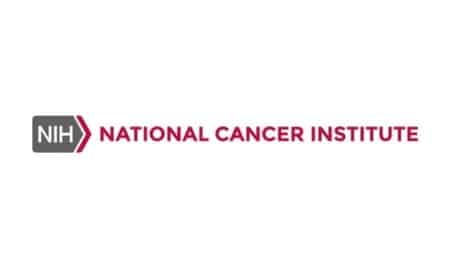
COVID-19: What People with Cancer Should Know ›
Guidance for those with cancer about getting vaccinated and boosted
Expert commentary
December 2021: CancerChoices advisor Jen Green, ND, FABNO, offers advice on reducing risks of severe COVID-19. These excerpts pertain especially to people with cancer.
Read her full document: Integrative Immune Support ›
Melatonin
Melatonin is mentioned as a coronavirus treatment in some studies and recommended by some physicians. However, melatonin is not advised for people with blood cancers. Speak to your physician or primary care professional about dosing and appropriateness for you.
Vitamin A
Vitamin A deficiency is more common in people with autoimmune conditions, inflammatory bowel disease, people who take statin drugs and people with cancer. If you are at risk of being deficient, fasting serum retinol is a blood test that can tell you your level.
Both deficient and excess vitamin A can suppress immunity so please be very mindful with dosing. Vitamin A supplementation is very important for people who are deficient in it, but in children with normal levels, high dose vitamin A can make their respiratory infections worse.11Chen H, Zhuo Q, Yuan W, Wang J, Wu T. Vitamin A for preventing acute lower respiratory tract infections in children up to seven years of age. Cochrane Database of Systematic Reviews. 2008 Jan 23;(1):CD006090; Stephensen CB, Franchi LM et al. Adverse effects of high-dose vitamin A supplements in children hospitalized with pneumonia. Pediatrics. 1998 May;101(5):E3. High dose Vitamin A is also not safe for pregnant women.
Zinc
Zinc deficiency is more common with vegans/vegetarians, people with chronic diarrhea, and cancer patients.
In an observational study in New York City, the addition of 50mg elemental zinc twice daily for five days to hydroxychloroquine and azithromycin did not impact ICU duration, but did increase the frequency of patients being discharged home, decreased the need for ventilation, decreased admission to the ICU, and lowered mortality or transfer to hospice.12Carlucci PM, Ahuja T et al. Zinc sulfate in combination with a zinc ionophore may improve outcomes in hospitalized COVID-19 patients. Journal of Medical Microbiology. 2020 Oct;69(10):1228-1234.
Safety notes:
- As an adult, do not take more than 80mg zinc daily for more than a brief period because high doses of zinc can become immune suppressive.13Johnson AR, Munoz A, Gottlieb JL, Jarrard DF. High dose zinc increases hospital admissions due to genitourinary complications. Journal of Urology. 2007 Feb;177(2):639-43; Wellinghausen N, Rink L. The significance of zinc for leukocyte biology. Journal of Leukocyte Biology. 1998 Nov;64(5):571-7.
- Always take zinc with food because it can cause nausea on an empty stomach.
- Zinc interacts with some antibiotics such as cipro and doxycycline.
Helpful links on integrative medicine and COVID
Cancer tends to thrive in an inflamed body. Strategies that minimize inflammation to reduce cancer risk may also reduce risks of severe COVID-19.14Five to Thrive Live. Critical Covid-19 Update. March 20, 2020. Viewed January 24, 2022.
These resources are not specific to COVID with cancer, but they guide you in supporting an appropriate immune response in general. They recommend measures to strengthen resilience and health:
Are you a health professional?
General guidelines

Journal of the National Cancer Institute
Recommendations for testing and treating outpatient cancer patients in the era of COVID-19 ›
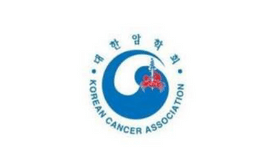
Korean Cancer Association
Guidelines for Cancer Care during the COVID-19 Pandemic in South Korea ›
Vaccination and cancer
Experts agree that the COVID-19 vaccine is recommended for people with cancer, cancer survivors, and those currently on cancer treatment, including chemotherapy and immunotherapy. The best available evidence suggests the odds of dying or experiencing severe complications from COVID-19 are roughly two times higher in a person with cancer than a person without cancer. “The only people who should not be offered the vaccine are those who may have a harmful reaction, such as anaphylaxis, to a specific vaccine component.”15Markham MJ. Coronavirus and COVID-19: What People With Cancer Need to Know. Cancer.Net. January 3, 2022. Viewed January 5, 2022.
With regard to vaccine efficacy, patients treated for solid tumors mount a good serological response to the vaccine. However, in certain hematologic cancers, humoral responses to the vaccine are subdued. ASCO explains that there’s limited evidence available regarding vaccination of patients with cancer receiving active treatment, but they are not aware of any study that has shown any safety concern for such patients.16COVID-19 Vaccines & Patients with Cancer. American Society of Clinical Oncology. December 3, 2021. Viewed January 5, 2022.
Vaccination guidelines
Some of the guidelines listed below provide strategies for timing vaccinations when patients are in active treatment and/or receiving immune globulin treatment.
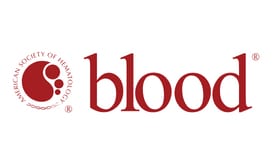
Herishanu Y, Avivi I et al. Efficacy of the BNT162b2 mRNA COVID-19 vaccine in patients with chronic lymphocytic leukemia. Blood. 2021 Jun 10;137(23):3165-3173.
Grapes and products made from grapes may promote body terrainthe internal conditions of your body, including nutritional status, fitness, blood sugar balance, hormone balance, inflammation and more factors known to be important in cancer, including better blood sugar and insulin levels and less oxidative stressan imbalance between free radicals and antioxidants in your body in which antioxidant levels are lower than normal; this imbalance can cause harmful oxidation reactions in your body chemistry.
Helpful links on vaccination and cancer
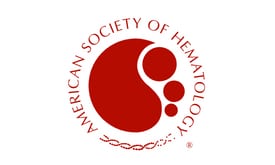
See the section “Should patients with indolent lymphoma receive a vaccine for SARS-CoV-2?”
COVID-19 and Indolent Lymphomas: Frequently Asked Questions ›
Further links for professionals
General information and research on COVID and cancer
Conventional cancer care and COVID
Integrative care and COVID
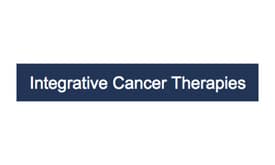
Block KI. Integrative cancer therapies: learning from COVID-19.
Integrative Cancer Therapies. 2020 Jan-Dec;19:1534735420932652
Learn more
References

